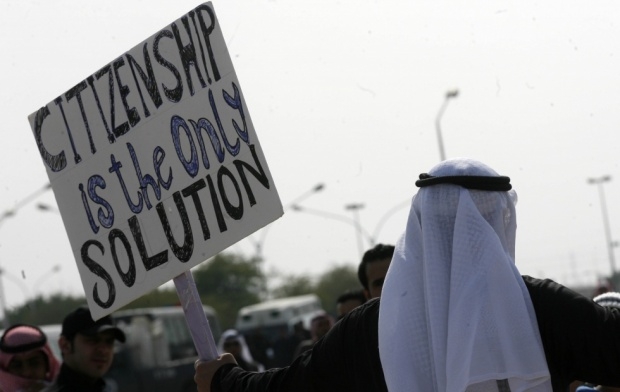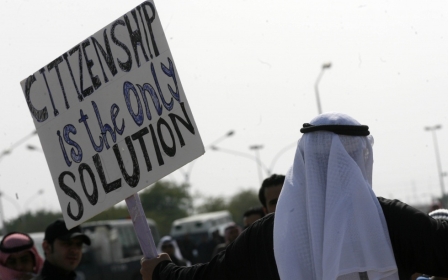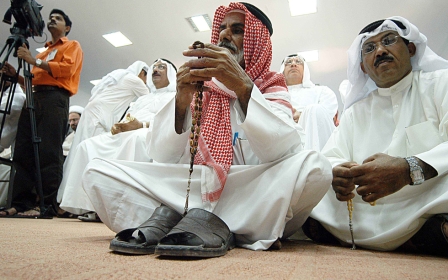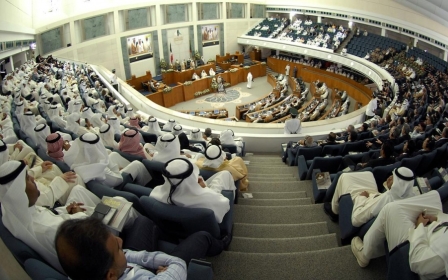Prominent Kuwaiti Bedoon activist claims he was beaten by police

A prominent Kuwaiti Bedoon was beaten by police while being transferred from court to prison, human rights campaigners have claimed.
Abdulhakim Al-Fadhli was beaten and left bruised by three policeman who attacked him on his way to the central prison in Kuwait after a hearing held in Kuwait City earlier this month.
Campaigners from Gulf Centre for Human Rights (GCHR) the say the attack occurred after Fadhli had one of his sentences suspended and left him with a “visible injury on his forehead” and bruising.
The attack comes after Amnesty International said that Fadhli was at risk of “ill-treatment” in detention and that he had been on hunger strike since his arrest on 18 April.
Fadhli, 40, is part of the Gulf state’s Bedoon community. Literally meaning “without”, the Bedoon - who number anywhere between 80,000 and 250,000 - do not have nationality in Kuwait despite many being from families who have resided in the Gulf state for decades.
The Bedoon issue is divisive as the community claims Kuwaiti nationality but the authorities consider them illegal residents. The community originates from the time of independence in 1961 when their ancestors did not apply for nationality or lacked documentation – other members of the Bedoon include those who worked within the security forces in the 1960s and subsequently settled in Kuwait.
Over the years there have been intermittent laws passed that naturalised small numbers of Bedoon and in May 2014 authorities announced talks with Comoros Islands officials to explore granting citizenship to Kuwaiti Bedoon in exchange for “economic benefits”.
Earlier this month there was speculation that a deal had been agreed with Comoros, but Kuwait’s foreign minister said on Monday that a deal had not been struck.
Impoverished Comoros consists of three islands in the Indian Ocean with a population of just under 800,000 people, nearly all of them Sunni Muslims.
Despite the country’s distance from the Middle East and North Africa, it is a member of the Arab League as well as the African Union.
Several years ago, Comoros offered thousands of bedoons in the United Arab Emirates citizenship in exchange for generous aid packages in a deal similar to the Kuwait proposal.
In Kuwait large protests by Bedoons have sporadically broken out since the Arab Spring erupted in 2011. Authorities have consistently broken up these demonstrations and regularly been accused of beating protesters and torturing detainees – a charge they have denied.
The attack against Fadhli reportedly occurred on 14 June after a hearing at the Kuwaiti Court of Cassation, which hears cases on points of law, handed him a one year suspended sentence.
The court ordered his release but he remains in detention pending appeal and campaigners fear that he may still face being deported from Kuwait. He is also still serving a three-month sentence from a charge of “misuse of a phone” during a demonstration.
A spokesperson for GCHR said: “We strongly condemns the beating of Abdulhakim Al-Fadhli by the police and believes it is a direct result of his peaceful and legitimate work for the promotion and protection of the rights of the Bedoon community and the exercise of his right to freedom of assembly.”
New MEE newsletter: Jerusalem Dispatch
Sign up to get the latest insights and analysis on Israel-Palestine, alongside Turkey Unpacked and other MEE newsletters
Middle East Eye delivers independent and unrivalled coverage and analysis of the Middle East, North Africa and beyond. To learn more about republishing this content and the associated fees, please fill out this form. More about MEE can be found here.




